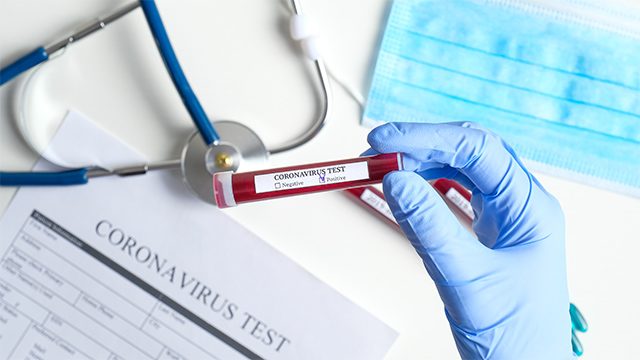SUMMARY
This is AI generated summarization, which may have errors. For context, always refer to the full article.

MANILA, Philippines – A medical expert urged the Department of Health (DOH) to consider the use of rapid antibody testing to expedite the monitoring of novel coronavirus cases in the Philippines.
In a position paper, Dr Minguita Padilla of the University of the Philippines College of Medicine said that rapid antibody testing is an “easy and convenient way to test” and would help greatly in the conduct of mass testing.
“We should not wait for April 14 to use the rapid antibody test kits for mass screening in the community,” she said. “We can and should start using them now.”
The rapid antibody testing requires blood samples and can only detect antibodies, as opposed to the normally-used polymerase chain reaction (PCR)-based test, which uses actual swabs from patients and find the actual presence of the coronavirus.
The DOH does not recommend the use of rapid antibody tests because it said they are not accurate enough to check for the virus, especially when the patient is in the early stages of the infection.
But Padilla said that this type of testing can catch those who are asymptomatic and already recovered, or those who won’t otherwise be tested under current standards because they do not show symptoms, or they only have mild symptoms.
She said it can also help quickly identify those who still have the virus and who already recovered, leading to an earlier lifting of the lockdown in several areas.
“The front lines must be the rural health units, and infirmaries and primary hospitals, not the tertiary hospitals that are busting at the seams because we are not equipping our point-of-care stations in the barangays with the testing kits they need so that they can identify the positives, and quarantine the mild and asymptomatic without burdening the tertiary hospitals,” Padilla said.
In a Youtube video, Padilla explained the how the rapid antibody testing can hasten the lifting of the lockdown.
Expanded coverage
Rapid antibody tests can also expand the coverage of testing and help reach faraway places in the Philippines, Padilla insisted.
“Rapid antibody tests can diagnose people in the remote barrios and identify those who are positive early enough,” she said. “We don’t have the luxury of PCR testing centers all over the country.”
New York, the hardest-hit in the United States, is set to roll out rapid testing soon. According to Governor Andrew Cuomo, this could be the key to achieving a “return to normalcy.”
The Philippines’ Food and Drug Administration (FDA) approved 5 antibody tests for COVID-19 on March 30, and one on April 4.
While it can yield faster results than a PCR-based test, FDA Director General Eric Domingo said that authorities “have to be very cautious in using these rapid test kits because they measure antibodies and not the viral load itself.”
He also said that swabs will still be taken for confirmatory testing using PCR-based standards. Physicians should also still be consulted to interpret the results.
“We have to be very cautious in using these rapid test kits because they measure antibodies and not the viral load itself,” Domingo said on March 30. “The body takes time to develop antibodies and this might give a negative result for patients who have been infected but have not yet developed antibodies.”
The Philippines is playing catch up on testing for novel coronavirus, which has been widely criticized by the public. The DOH also said there were some 106,621 available test kits.
On Tuesday, April 7, Cabinet Secretary Karlo Nograles said that the government targets to reach 20,000 tests per day by April 27, but priority will be given to patients under investigation and persons under monitoring to avoid overwhelming laboratories.
Padilla said she hopes that the government plans include the use of the rapid test kits.
“We also hope that whatever plan the DOH comes up with does not prevent areas with no PCR machines from using the antibody test kits,” she said.
So far, 10 laboratories are accredited to do coronavirus testing nationwide, with 69 more laboratories being prepared, according to the DOH.
As of Tuesday, the Philippines has 3,764 confirmed cases of the coronavirus, with 177 deaths and 84 recoveries. – Rappler.com
Add a comment
How does this make you feel?
There are no comments yet. Add your comment to start the conversation.